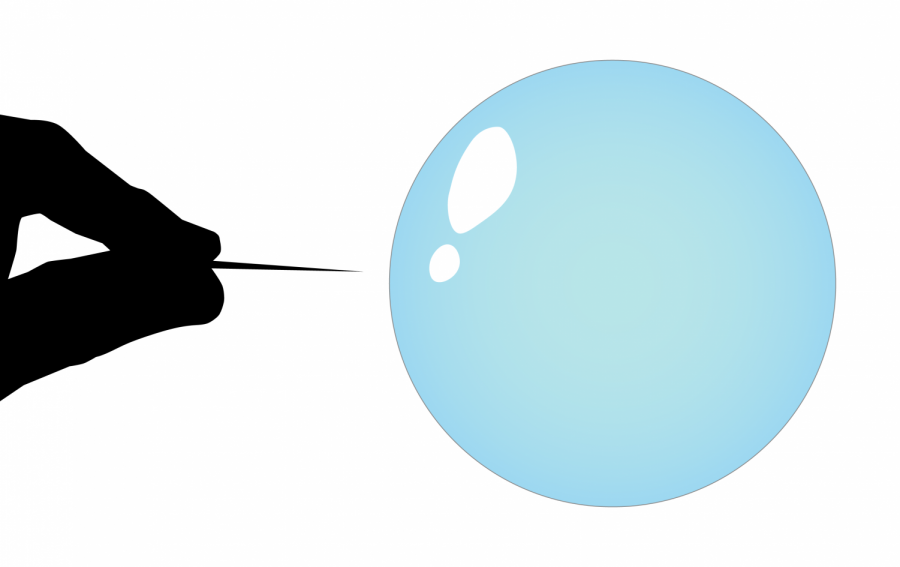It’s time to burst the bubble: Real issues on campus
December 5, 2019
The University’s bubble: we all laugh, knowing that when we come to campus, it’s as if time stops and everything beyond these manicured lawns ceases to be — and all the things that really happen while we’re learning about thermodynamics and the Coase Theorem disappear from average existence. We all want to live in that world; to great effect, we want to forget about the politics, the divisiveness and the tragic comedy of life.
I want to burst your bubble on the University’s seemingly sheltered existence. There is no societal bubble around the University, and you’re duping yourself and others if you think that there is one. It doesn’t exist, and not only is it a delusion, but it’s a dangerous one.
Our existence on this campus seems sheltered because for far too long the idea has reigned that somehow existence on a college campus, however viewpoint diverse, is apolitical and is separated from the world; that we are a disconnected academic Ivory Tower from which we gaze at the world from afar. However, from the growing presence of ecological, political, economic and cultural challenges the University faces, we can cast these fairy tales of academic and institutional objectivity aside as blatantly misleading.
The University shares problems with the rest of the world, and if we wish to fix the problems of the real world, it’s best to start caring about the existence of them during our four years here. Based on conversations with Dining Services employees, some full-time workers work for just $9 per hour (just above the federal poverty line), while sometimes working 12-hour shifts with minimal breaks, and some students are unable to feed themselves on restrictive and costly meal plans. A degrading and dangerous culture of sexual assault and victim-blaming pervades and seeps itself into the University’s fabric, although some would have you deny its existence. According to the University’s 2016-17 sexual assault survey, one-third of women are sexually assaulted at least once during their four years here. Casual and institutional racism is something of a sport on a campus where three out of every four students are white, where a private school pedigree and East coast wealth are norms and where sociology professors can get away with defending biology-based racial discrimination. And perhaps – especially today, the day of the second recent climate strike on campus which aims to make the school carbon neutral – we can say that the University shares with its neighbors the global climate crisis as well.
This social character of the problems shared at this University and in real life are overlooked by those who hold the myth of the University as an Ivory Tower. The myth of an apolitical University is a myth constructed to distract from the fact that the consequence of ignoring campus problems is a gateway for students to not question the unethical behavior around them when they graduate, too. It’s a method to make you think that the problems we have here are not socially created and are instead objective realities of the world we live in. Not only are we told that our problems are isolated from the world, but when connections are made to larger issues, we’re then disappointed by the administration telling us that they’re just not fixable. We are told that feeding every student, paying a living wage to employees, keeping innocent people out of the hands of serial rapists and abusers, being aware of the University’s institutional racism and diversity problems when making choices on who to bring to campus and that creating an environmentally sustainable campus are pipe dreams. However, I wasn’t aware that the University’s academic mission statement was to inspire a generation of apathetic nihilists and uninspiring data crunchers. This university needs more activists, not gray-suited businessmen policing what we ought to be or what is or isn’t possible.
The question is not whether the University should aid in some outside social justice struggle. Our struggle is unique, but we face it in tandem with the rest of the world and society around us. These problems are real and present for many people on this campus. We have obligations as people with empathy and rational interests to pursue aggressive and politically radical solutions to the University’s moral crisis. Pop as many fake “bubbles” as you can and you might see a change start to happen.























Anon • Dec 5, 2019 at 9:01 pm
Best article I’ve ever seen in the Bucknellian, need more like this